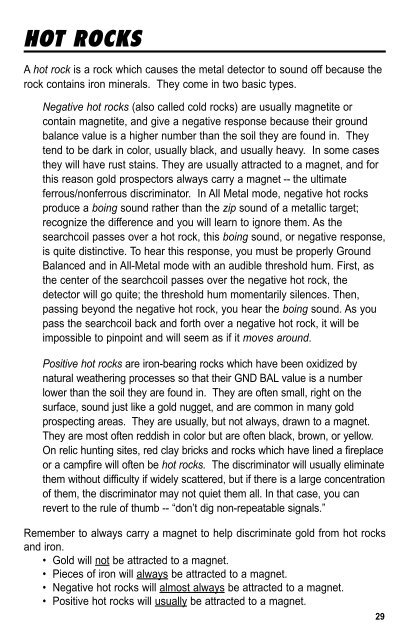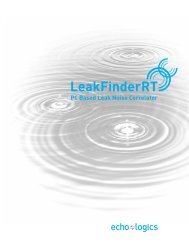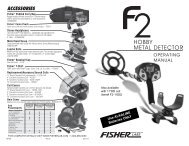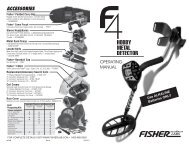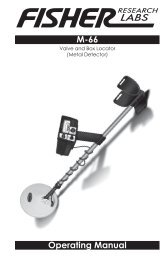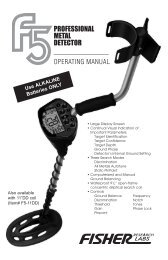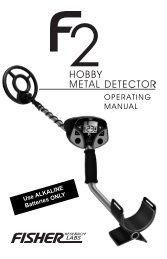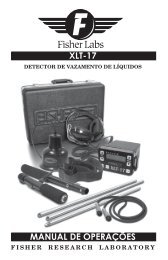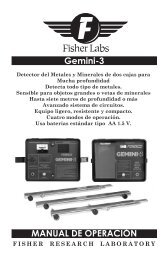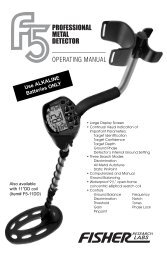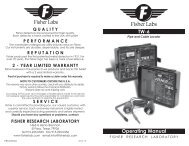Gold Bug Pro Manual - Fisher
Gold Bug Pro Manual - Fisher
Gold Bug Pro Manual - Fisher
You also want an ePaper? Increase the reach of your titles
YUMPU automatically turns print PDFs into web optimized ePapers that Google loves.
HOT ROCKSA hot rock is a rock which causes the metal detector to sound off because therock contains iron minerals. They come in two basic types.Negative hot rocks (also called cold rocks) are usually magnetite orcontain magnetite, and give a negative response because their groundbalance value is a higher number than the soil they are found in. Theytend to be dark in color, usually black, and usually heavy. In some casesthey will have rust stains. They are usually attracted to a magnet, and forthis reason gold prospectors always carry a magnet -- the ultimateferrous/nonferrous discriminator. In All Metal mode, negative hot rocksproduce a boing sound rather than the zip sound of a metallic target;recognize the difference and you will learn to ignore them. As thesearchcoil passes over a hot rock, this boing sound, or negative response,is quite distinctive. To hear this response, you must be properly GroundBalanced and in All-Metal mode with an audible threshold hum. First, asthe center of the searchcoil passes over the negative hot rock, thedetector will go quite; the threshold hum momentarily silences. Then,passing beyond the negative hot rock, you hear the boing sound. As youpass the searchcoil back and forth over a negative hot rock, it will beimpossible to pinpoint and will seem as if it moves around.Positive hot rocks are iron-bearing rocks which have been oxidized bynatural weathering processes so that their GND BAL value is a numberlower than the soil they are found in. They are often small, right on thesurface, sound just like a gold nugget, and are common in many goldprospecting areas. They are usually, but not always, drawn to a magnet.They are most often reddish in color but are often black, brown, or yellow.On relic hunting sites, red clay bricks and rocks which have lined a fireplaceor a campfire will often be hot rocks. The discriminator will usually eliminatethem without difficulty if widely scattered, but if there is a large concentrationof them, the discriminator may not quiet them all. In that case, you canrevert to the rule of thumb -- “don’t dig non-repeatable signals.”Remember to always carry a magnet to help discriminate gold from hot rocksand iron.• <strong>Gold</strong> will not be attracted to a magnet.• Pieces of iron will always be attracted to a magnet.• Negative hot rocks will almost always be attracted to a magnet.• Positive hot rocks will usually be attracted to a magnet.29


